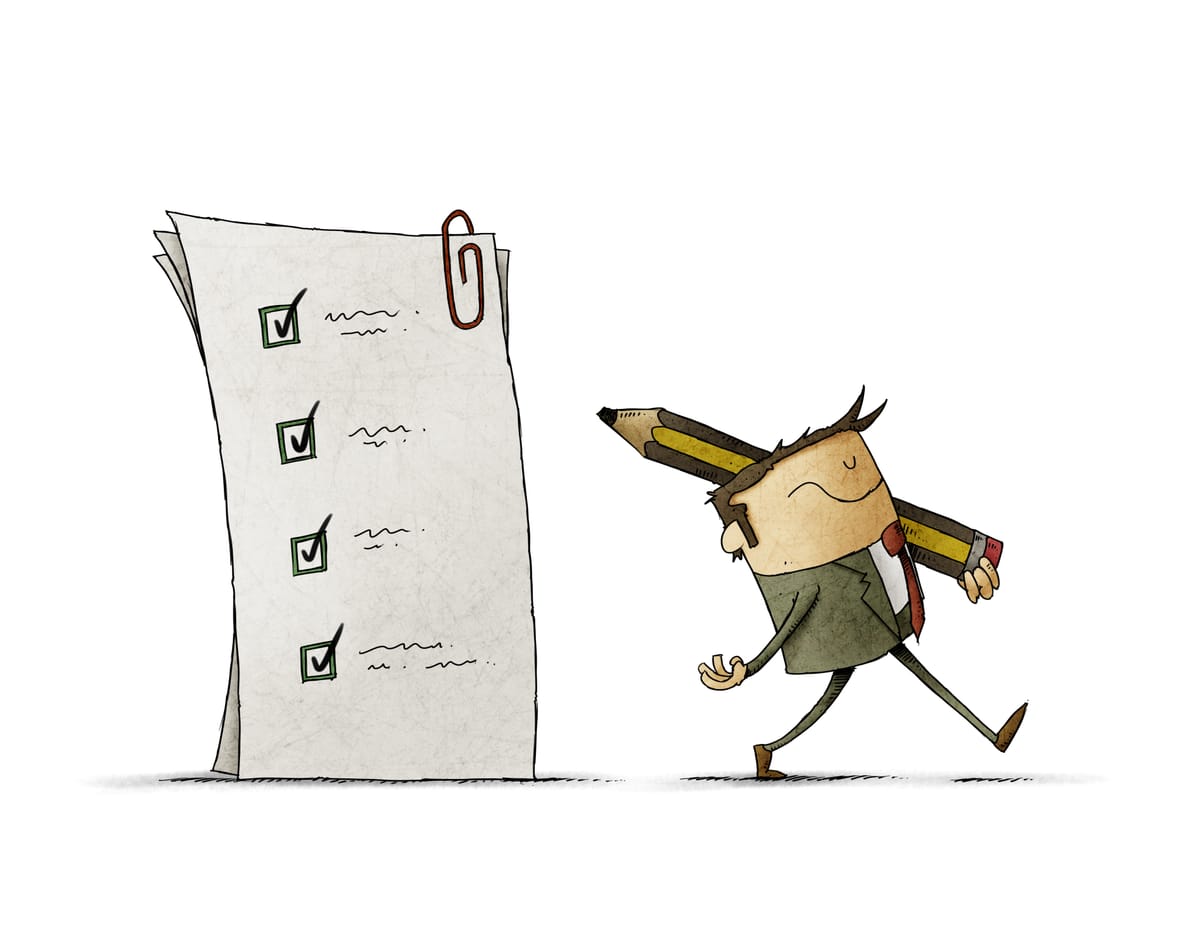How I Live a Focused Life in a Distracting World

During the few minutes it took me to write this paragraph, I've resisted the urge to check Facebook at least four times. Judging by the fact that roughly 1 in 15 school-aged children today is diagnosed with ADHD—and symptoms are known to persist into adulthood almost 30% of the time—I'm not alone.
When performing any task, I often find it difficult to stay focused. Despite the fact that I'm mentally alert now more than ever because I've challenged my sleep habits—and changed them for the better—I often feel scattered or find my mind wandering.
Rather than accept the fact that I'm easily distracted and move on, however, I've filled my life with tools and techniques that help me make the most out of my time.
My Today List
Rather than simply have a master to-do list, a today list allows me to isolate 3-5 major items I wish to accomplish today. Filling my today list is the first thing I do every morning once I sit down at my desk. I have a master to-do list on my computer which I use to keep track of everything that has to get done, but every morning I pick a few things off that list to include based on urgency and importance.
I usually have a few different categories of tasks on my list (work, personal life, etc.), and I focus on one category at a time. I don't always finish every item on the list, so unfinished items often become the beginning of my next today list. If I do finish everything, I revisit the master list and pick the next couple of items to focus on!
Using a today list allows me to strategically plan my day at the start, and the physical notepad in front of me serves as a constant reminder of where my focus should lie (plus, checking off those boxes feels far more fulfilling than the mouse-click a task management app provides).
I first tried using a today list after I heard Dcn. Michael Hyatt describe how he used one on his podcast episode entitled Become More Productive by Reengineering Your Morning Ritual. This has been a crucial productivity tool for me, I don't know how I ever got stuff done without one!
Themed Days
The next major shift in productivity for me came when I started having a theme for each day.
I have a lot of different responsibilities with my job. That can keep things interesting, but it can also make it difficult to focus on starting one task when it's often completely different than the task I just completed. To resolve this, I brainstormed major categories for the tasks I have to do in a given week and gave each day of my week a theme.
Having themed days allows me to make sure I spend adequate time on each category of responsibilities every week. When I pause between tasks, the map of my week reminds me of where my focus should be, and I typically use the day's theme as a guide when making my today list. There are some tasks which have to get done right away, so I can't focus exclusively on the day's theme, but it provides a healthy framework for my week and keeps everything in order.
As soon as I saw how much more productive I was with themed days, I started adding mini-themes to my personal time outside of work, too!
This idea of creating a theme-map for my weekly schedule wasn't original. I picked the idea up from Jack Dorsey, the co-founder of both Square and Twitter. At one point, he was working eight hours at each company every day. He explained how he made this possible in an interview with Techonomy. The key element of his weekly discipline was themed days.
There are plenty of other techniques I use to stay focused, and I'm always trying new techniques out. Right now, these are the methods I'm adding to my regular discipline:
- Listening to music from focus@will when I work on important projects. Their music is scientifically designed to help people focus.
- Logging out of Facebook when I'm not using it, which adds an extra ten-second barrier to entry. I also don't allow the site to “remember me,” which in general means I have to be intentional about using it.
- Turning my computer screen off when I'm on the phone with someone. This helps me avoid the temptation of browsing while talking, and lets me give the person on the other side of the phone my undivided attention.
I've written on refocusing techniques in a previous post, but these are the most powerful techniques I've discovered so far. But what about you?
Question: How do you focus on what needs to get done?
